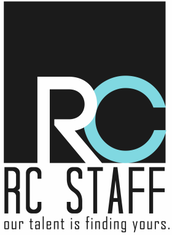|
1. Take the time to get to know your potential employer!The key to success in any job interview is to take the time to get to know the background and history of your potential employer's company! You should understand the company, the requirements of the job, and a little history of your interviewer and their role in the company. The more research you conduct, the more you’ll understand the employer, and the better you’ll be able to answer interview questions. Utilize the internet and search engines, blogs, job reviews, and the company's website to gain as much knowledge as possible!
2. Review generalized interview questions and practice your responsesAnother way to prepare for your interview is to look into potential interview questions and practice what your answer would be. Most commonly, interviews tend to be composed of the same "type" of questions, just in different formats. If you prepare yourself with these potential questions, you will be confident in your answers and not caught off guard. 3. Dress for SuccessTake the time and effort to plan out an appropriate interview outfit. Its always a good idea to make a good first impression! Remember that it’s always better to be overdressed than under. Ensure your clothes are clean, wrinkle free, appropriate for the type of interview, and not too revealing! If possible, be sure to freshen your breath before the interview as well. 4. Arrive on TimeThere is no excuse ever for arriving late to an interview. Strive to arrive about 15 minutes before your scheduled interview to complete additional paperwork and allow yourself time to get settled. 5. Make Good First ImpressionsBe polite and offer warm greetings to everyone you meet. Employers often are curious how job applicants treat staff members. When it’s time for the interview, keep in mind that first impressions interviewers get in the first few seconds of meeting you can make or break an interview. Remember that having a positive attitude and expressing enthusiasm for the job and employer are vital in the initial stages of the interview. 6. Be Confident, Cool, and CollectedBe confident in the quality of your answers. You should always strive to answer questions truthfully and authentically. You want to provide answers that showcase your work ethic, experience, and dedication. Always attempt to keep your interview responses short and to the point. One tip of advice, never badmouth a previous employer, boss, or co-worker! Ever! 7. Remember the Importance of Body LanguagePoor body language can have a negative effect on your interview outcome! Effective forms of body language include smiling, eye contact, solid posture, active listening, and nodding. Negative traits such as slouching, looking off in the distance, playing with a pen or phone, fidgeting in a chair, chewing gum, or mumbling can end your interview right then and there. 8. Ask QuestionsEven if the interviewer was thorough in his or her discussions about the job and what is expected, you must ask a few questions. This shows that you have done your research and that you are curious. The smart job seeker prepares questions to ask days before the interview. 9. Sell YourselfInterviews are all about selling yourself. Sometimes you MAY not be the most qualified candidate but often times they will choose you based on how you sold yourself! If you provide to them what you offer as an employee and how YOU will benefit THEM, that is often enough. Ask about the next steps in the process and about how long the employer expects to make a decision about the position. 10. Thank Interviewer(s) It is important to take the time in thanking each person who interviews you. Start the process while at the interview, thanking each person who interviewed you before you leave. Write thank-you emails shortly after the interview and in doing so it will certainly give you an edge over any of the other finalists who didn’t bother to send thank-you notes. |
AuthorWrite something about yourself. No need to be fancy, just an overview. Archives
July 2019
Categories |

 RSS Feed
RSS Feed